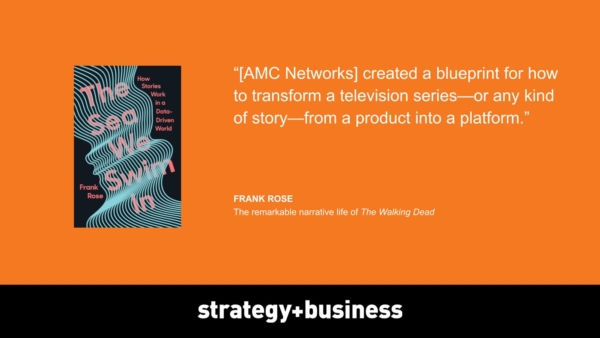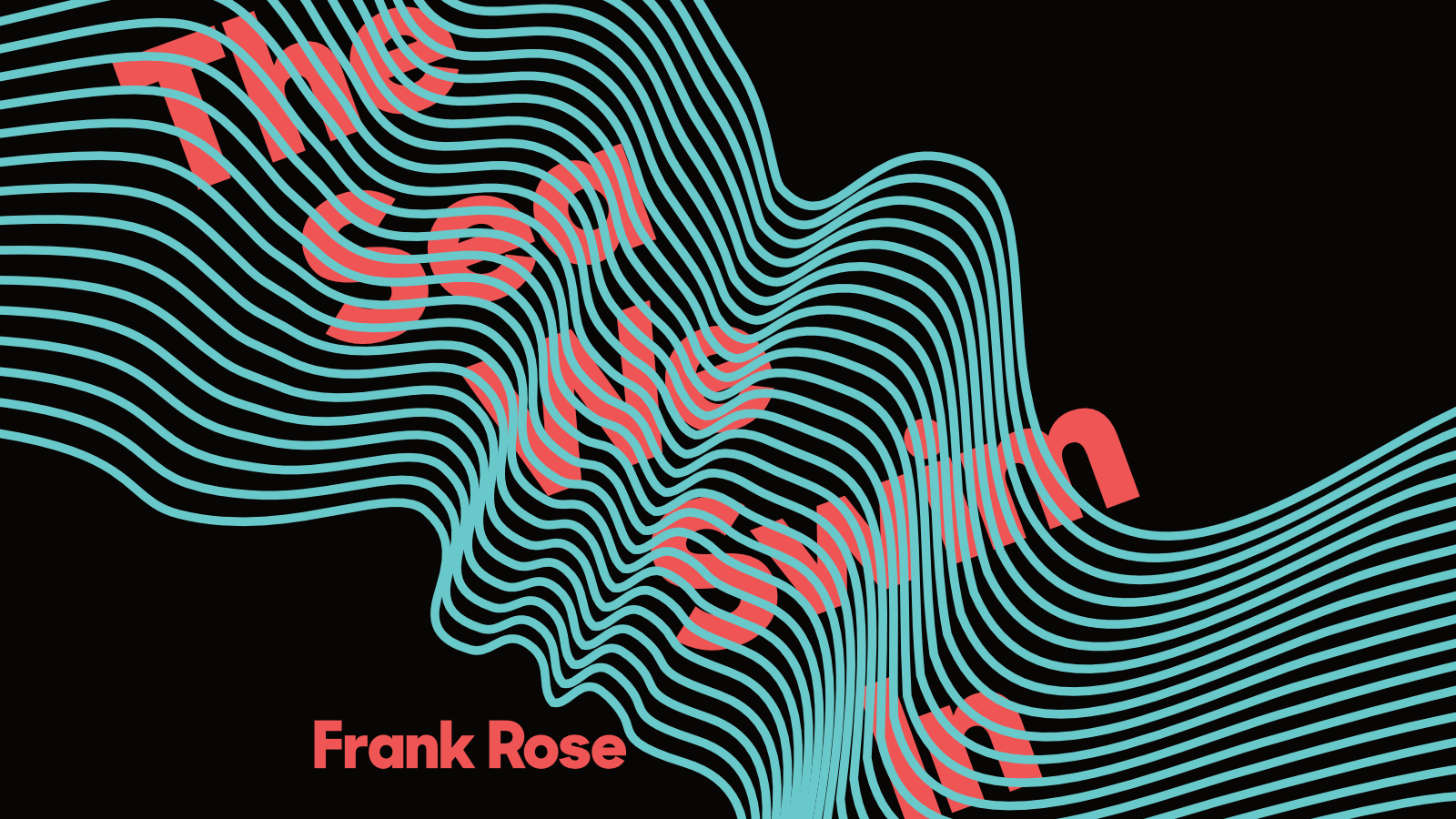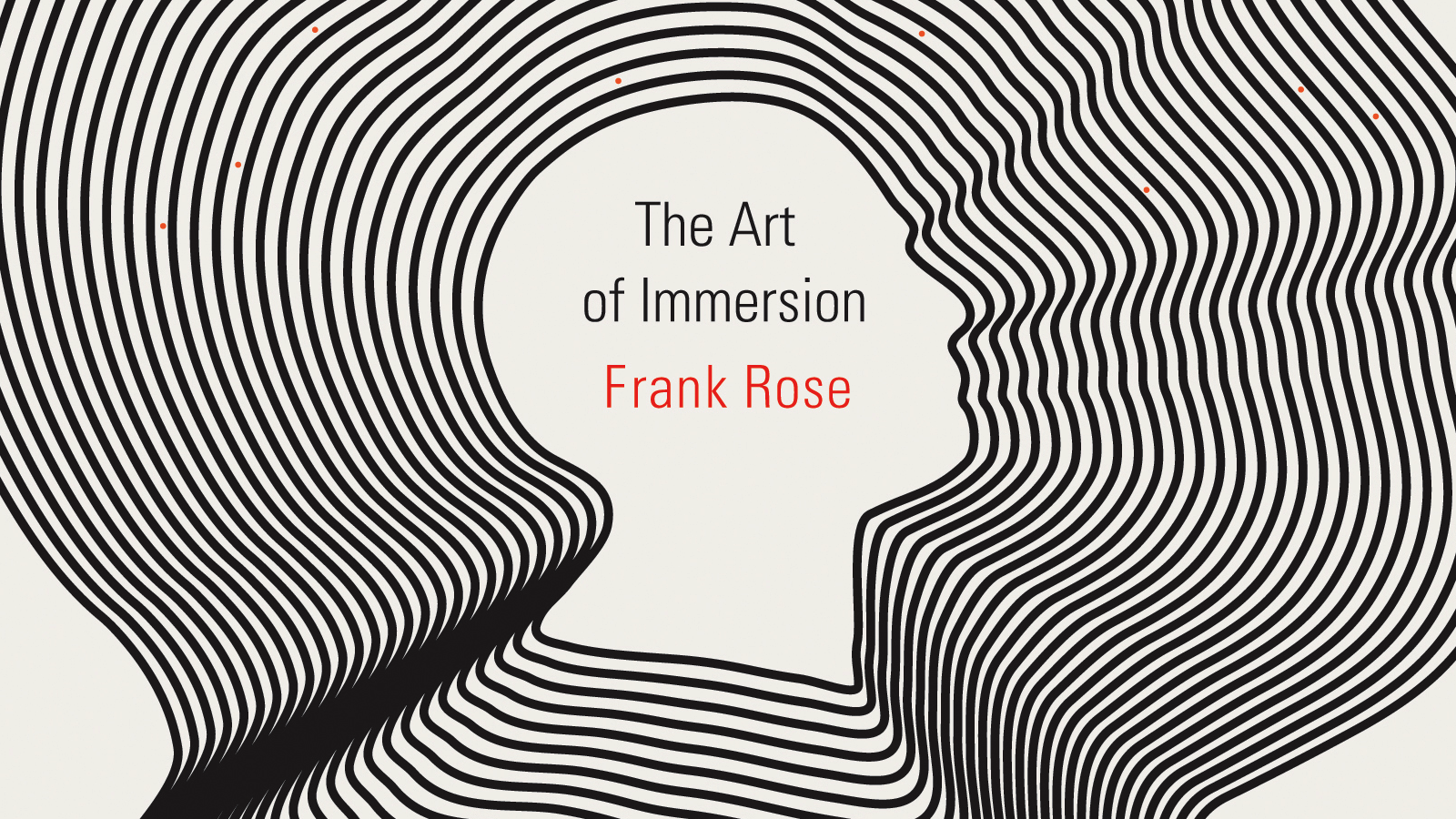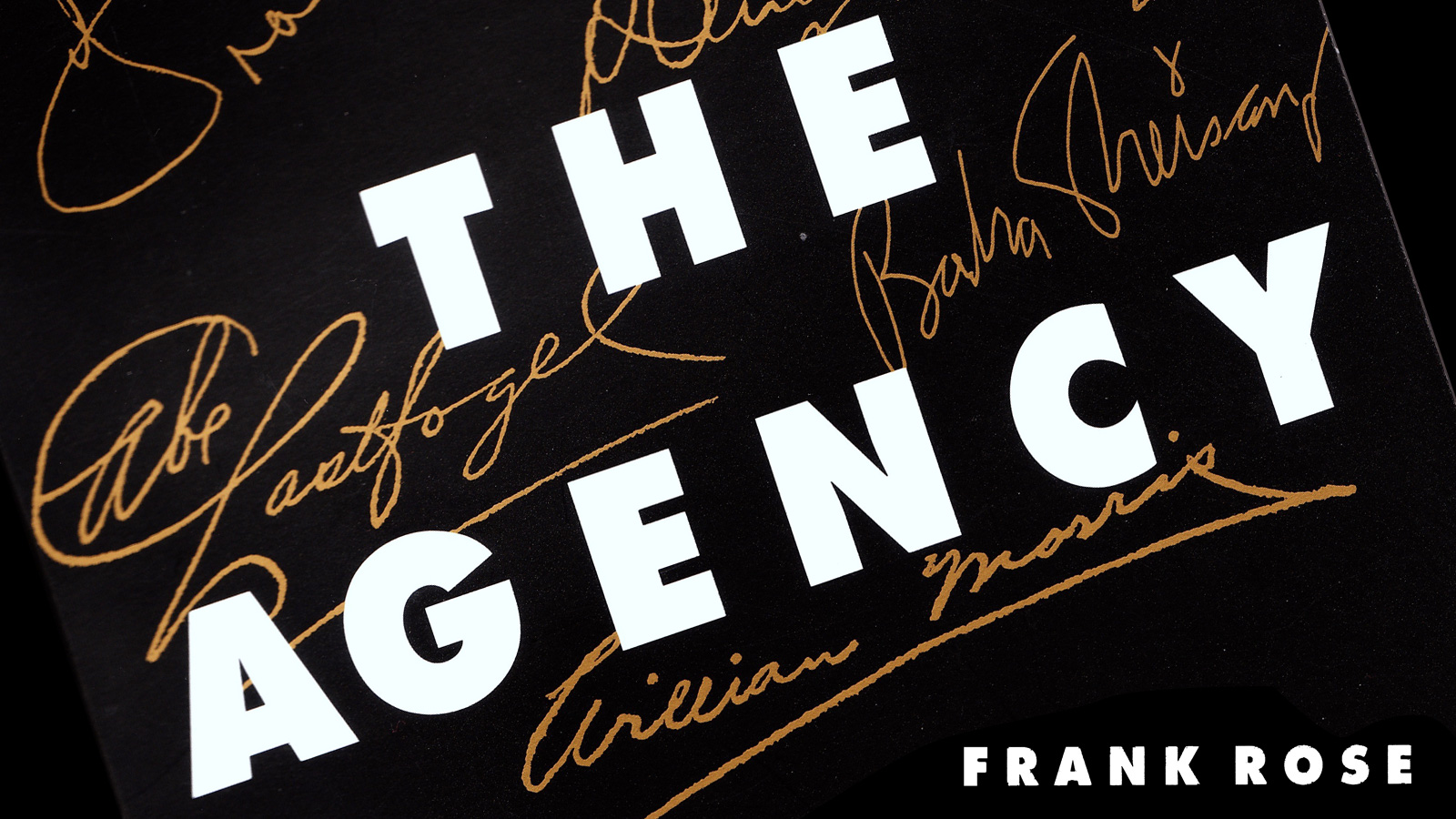The Sea We Swim In
How Stories Work in a Data-Driven World
"A brilliant and deceptively simple guide to narrative thinking, and why narrative thinking is changing the way we shop, the way we vote, the way we feel, and the way we perceive the world around us . . . It is such a fascinating and in many ways a new way to look at reality."
— John Fugelsang, SiriusXM"It’s a zingier version, then, of the post-Aristotelian story-theory books beloved of screenwriters, with a rich range of reference that takes in the novels of Gustave Flaubert as well as the twists of ABC's 'Lost.' But the analysis has a wider salience. . . . It’s critical thinking for an age of pervasive media."
— Steven Poole, The Wall Street Journal"'The Sea We Swim In' is an essential master class in how to think about that next pitch you need to make, letter you want to write, speech you have to deliver, or anything else you hope will be persuasive. The right story can open up a person's heart and change their mind far more effectively than an argument or set of data—and Frank Rose explains it all beautifully."
— Daniel J. Levitin, best-selling author of "This Is Your Brain on Music" and "The Organized Mind""Frank Rose's fascinating new book is an essential companion for our age — when narratives, no matter how incredible, produce real-world outcomes that defy all reason. 'The Sea We Swim In’ takes us systematically through the elements that create compelling stories and offers a practical guide both to crafting powerful tales and to resisting the pull of the most dangerous."
— Rita McGrath, Columbia Business School professor and author of "Seeing Around Corners""As we’ve witnessed in the rise of conspiracy theories around the coronavirus and presidential election . . . science and rationality can be trumped by powerfully told, emotionally appealing, and endlessly repeated narratives that are contrary to verifiable facts. We can say that such narratives are divorced from reality, but as Frank Rose writes in ‘The Sea We Swim In,’ ‘reality is a construct, and narrative is the chief means of construction.’"
— Porchlight Books (staff pick)"If you want to connect with customers — that is to say, with the audience for the experience you’ve created — Frank Rose shows not only that you have to think narratively but how to go about it, element by element. And he wonderfully exemplifies his ideas, for his stories about storytelling are superbly written and expertly woven together. Read this book to be immersed in the sea of storytelling that's so crucial to business success today."
— B. Joseph Pine II, coauthor of "The Experience Economy" and "Authenticity""A master storyteller on the story of stories. Rose deconstructs them expertly—how they make us pay attention, how they move us, and why we remember them. His eloquent toolkit will help us make our own stories more effective and avoid being buffeted by the strange modern sea of digital stories that surrounds us."
— David Kirkpatrick, author of "The Facebook Effect" and founder of Techonomy"Terrifically readable, as compelling as the many successful stories and stories of success it tells."
— Brian Boyd, author of "On the Origin of Stories" and emeritus professor of English at the University of Auckland"Neuroscientists tell us and politicians . . . well know how much more convincing a good story can be than an account that's based on data. A good reason to learn more about the brain mechanisms that are activated by stories and the tricks that storytellers use, both of which are revealed."
— Corriere della Sera (Milan)"For the past decade, Rose has shifted his attention from telling stories to dissecting them, researching how technology has collided with humanity's innate need for narratives. . . . In his latest book, 'The Sea We Swim In,' Rose explains the science of how narratives shape our reality and how the Internet has broken the spell of passive consumption."
— Contagious (UK)A practical guide to “narrative thinking” — and why it matters in a world defined by data.
Now in paperback, with a new introduction on A.I. and the stories we tell ourselves about it.
WE SWIM IN A SEA OF STORIES — stories that determine how we comprehend the world and how we view our place in it. That define our personal lives, our professional lives, our goals and ambitions and ideals. They can control us, or we can control them — if we know how they work. In The Sea We Swim In, Frank Rose shows us just that.
The tools of professional storytellers — characterization, world-building, the narrative arc — are available to all of us. But to use them effectively, we need to unlock a way of thinking that may seem novel — though in fact it is very, very old.
Psychologists, economists, advertising and marketing executives — for decades, the experts failed to register the power of narrative. Scientists thought stories were too frivolous to study. Economists were knee-deep in theory. Marketers just wanted to cut to the sales pitch. Yet stories, not reasoning, are the key to persuasion.
The power of narrative is unparalleled. It explains the rise of Donald Trump and the fall of Joseph Biden. It can open us up to new possibilities, or it can narrow our thinking and tear us apart. And now more than ever, the choice of what stories to hear is ours to make.
Frank’s previous book, The Art of Immersion, showed how stories are changing in the digital age. Now he has expanded the picture. Building on recent discoveries in cognitive psychology and neuroscience, inspired by his Strategic Storytelling seminar at Columbia University, The Sea We Swim In shows us how we can see the world in narrative terms, not as a thesis to be argued but as a story to be told. This is the essence of narrative thinking. It is, as The Wall Street Journal notes, “critical thinking for an age of pervasive media.”
Leading brands, top entertainment professionals and successful politicians already understand this mode of thought. From Warby Parker to Mailchimp to the British Army, The Sea We Swim In explains how they use stories to turn ordinary people into followers and fans — and how you can do the same.
Learn what “narrative platforms” can do for you — in strategy+business . . .
A key concept in The Sea We Swim In is the idea of the narrative platform, an extension of platform economics that can serve as a force multiplier for any organization that seeks to leverage the power of stories. Strategy+business excerpted a section on The Walking Dead to accompany PwC’s 2021 Global Entertainment & Media Outlook, while the Milken Institute Review adapted segments on Warby Parker and Burberry to show how this can work for non-entertainment brands as well.
 The remarkable narrative life of The Walking Dead
The remarkable narrative life of The Walking Dead
By surrounding it with spin-offs, games, live events, even a talk show about the show, AMC Networks transformed a cable television series into a cultural phenomenon that invited fans to interact and co-create. In the process it created an entirely new kind of platform — an ecosystem of stories that brings like-minded people together in a marketplace of ideas and information.
. . . and in The Milken Institute Review:
 The Fifth Platform
The Fifth Platform
Economists have identified four types of platforms, each of which brings together different groups of people for their mutual benefit. Now we see the emergence of a fifth type. Narrative platforms support a sprawling ecosystem of stories. They function as a place for like-minded people to interact with other like-minded people — people who are there to connect with the story, but also to connect with each other about the story. To see the outsized impact this can have, witness the blossoming of Warby Parker and the rebirth of Burberry.
Listen to Frank and Charlie Melcher on the Future of StoryTelling Podcast:
Founded by the award-winning book and app developer Charles Melcher in 2011, the Future of StoryTelling (FoST) is a passionate community of people in media, technology, and communications who are exploring how storytelling is evolving in the digital age. Among Charlie’s previous guests are Margaret Atwood, Joseph Pine, Al Gore and Neil Patrick Harris.
How the Digital Generation Is Changing Hollywood, Madison Avenue, and the Way We Tell Stories
"For anyone even remotely interested in a how-we-got-here-and-where-we’re-going guide to interactive, socially networked entertainment, it’s an essential read."
— Empire (UK)NOT LONG AGO WE WERE passive consumers of mass media. Now we approach television, movies, even advertising as invitations to participate. We are witnessing the emergence of a new form of narrative that is native to the Internet. More about The Art of Immersion...
William Morris and The Hidden History of Show Business
"A must-read for anyone who wants to understand both the general thrust of Hollywood innovation and the general influence of agents behind that innovation, starting in 1898 when William Morris opened shop."
— WME partner Bradley Singer in Business InsiderFOR DECADES, the Morris agency made deals that determined the fate of stars, studios, and television networks alike. But everything changed after the agency's president dismissed his own best friend, the man who'd brought Barry Diller and Michael Ovitz out of the mailroom. A multi-generational saga of loyalty and betrayal in Hollywood. More about The Agency...










